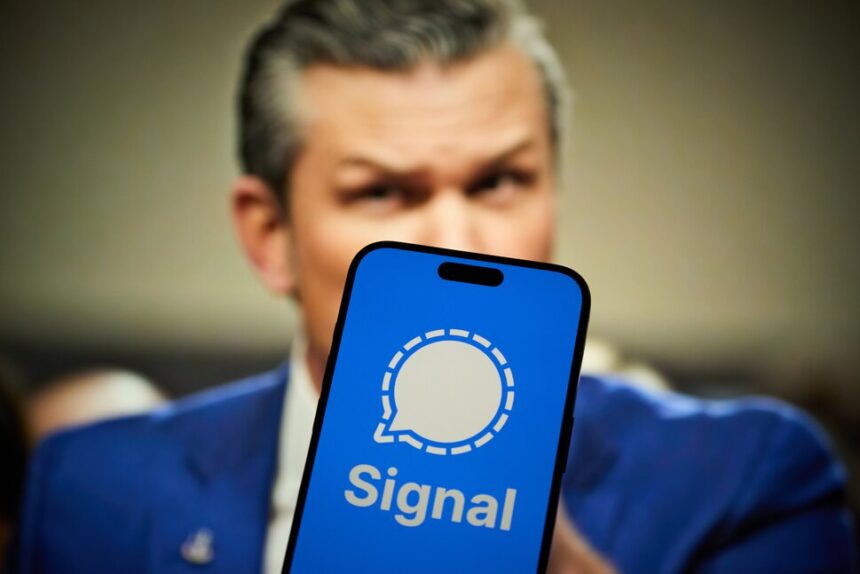You couldn’t make this stuff up, because one would believe it. The story of President Donald Trump’s foreign policy team discussing detailed plans to attack the Houthi rebels in Yemen on Signal, an unauthorized and definitely-not-secure commercial messaging app, just gets stranger and stranger. Heads should roll, but they probably won’t.
During my many years in the U.S. government handling and analyzing intelligence, personal cell phones could not even be taken into one’s office, much less used for group chats full of sensitive information. Intelligence was discussed in a sensitive compartmented information facility, a vault better known as a SCIF. The most sensitive foreign policy issues and final war plans are typically discussed in the very secure White House Situation Room; officials who can’t be there can join the conversation over secure videoconference facilities.
But instead of being reassured that serious leaders are taking our national security seriously, thanks to The Atlantic magazine, we got a window onto an opéra bouffe, with clownish and juvenile emojis being shared in a group chat. National security adviser Mike Waltz has taken responsibility for inadvertently adding the editor-in-chief of The Atlantic, Jeffrey Goldberg, to the group chat, though he claims not to know Goldberg or have any idea how it happened.
Goldberg revealed the troubling breach of security in an article published Monday, but said he was withholding details that looked sensitive and possibly even classified.The next day, both Tulsi Gabbard, the director of national intelligence, and CIA Director John Ratcliffe denied in testimony to Congress that any classified information had been involved, essentially daring The Atlantic to prove them wrong. So Goldberg published the receipts.
Those transcripts proved that Defense Secretary Pete Hegseth texted the group of 18 other people (including a journalist identified only as “JG,” whom no one bothered to ask about) precise information about the timing of carrier-based airstrikes on Houthi targets.
The details get curiouser and curiouser. Steve Witkoff, a real estate developer and Trump’s special envoy to the Middle East and Russia, who was included in the Signal chat, was in Moscow, where he and his devices were no doubt under constant surveillance by Russian intelligence. Witkoff says he had only a secure government device with him in Russia, and that he didn’t comment in the chat until after he returned to the U.S. “Guess why? Because I had no access to my personal devices until I returned from my trip,” Witkoff wrote on X.
That’s a stunning acknowledgement that the group chat was happening not just on an unauthorized commercial messaging app, but on personal devices instead of secure government phones.
Meanwhile, the acting chairman of the Joint Chiefs of Staff was not in the chat – but Trump’s deputy chief of staff who focuses on immigration, Stephen Miller (identified as “S M” in the chat), was. Indeed, Miller seems to have made the final “go” decision on the attack, and there is no evidence that the president and commander in chief participated in the deliberations, even




